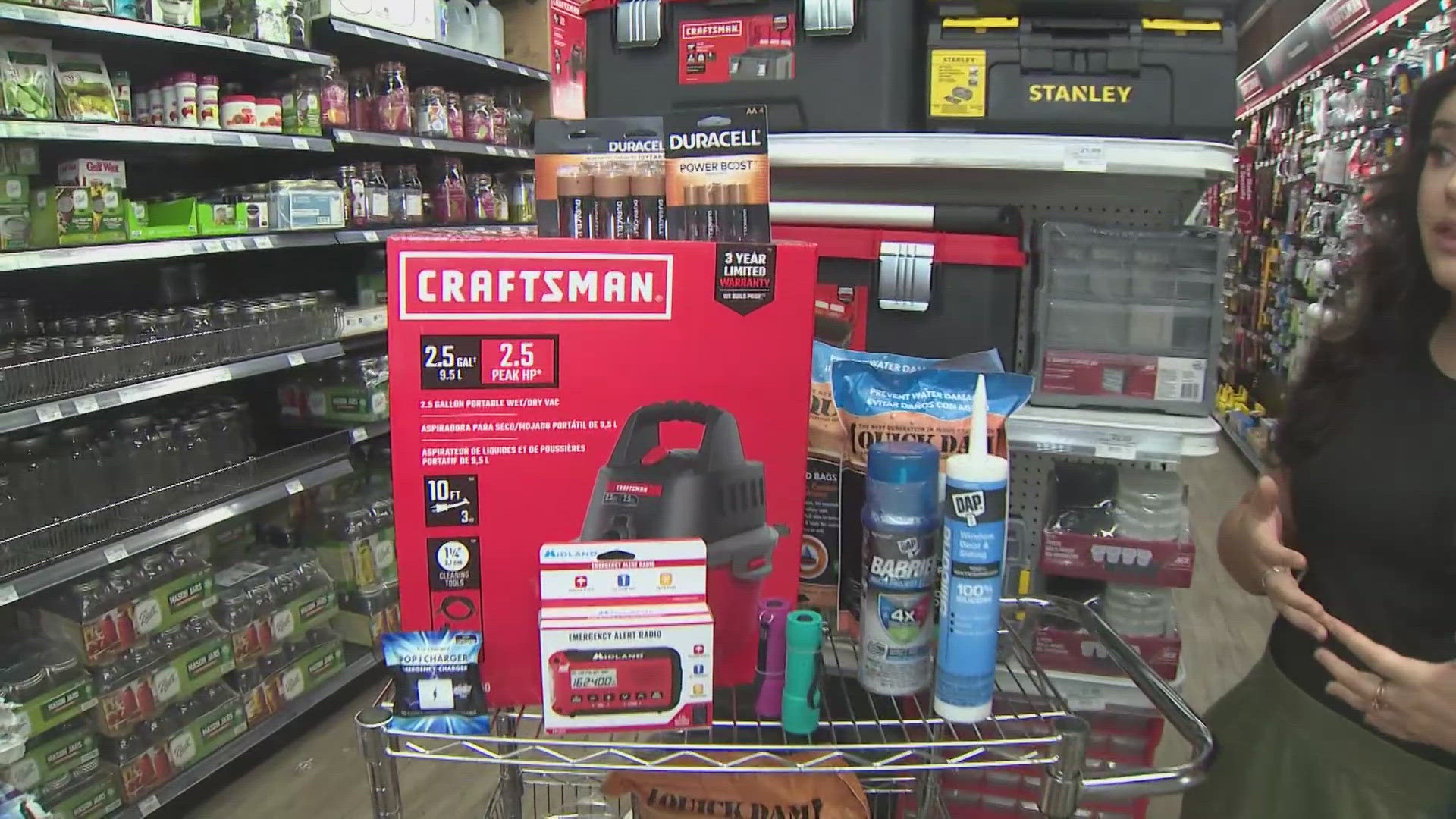WASHINGTON —
The DMV is no stranger to inclement weather. From summer heat and storms to winter snow and ice, we must prepare for it all, especially when it comes to your home. Let’s go over some important things to keep in mind before, during, and after a storm rolls through town.
Before
There are plenty of actions you can take right now to be ready for stormy weather. First, have a reliable way to get weather information. Download our WUSA9 app and allow location and notification services. This will ensure that if there is a storm in your area we can send you an alert to let you know.
Next, put together a storm preparedness kit. This should include things like cellphone chargers, flashlights, batteries, a hand crank radio, and blankets. These things will all prove to be useful in case of a power outage. If a storm is forecast to cause long-term impacts be sure to include nonperishable food, water, medication, pet food, and cash.
It would also be beneficial to look around your house for areas that might need some pre-storm attention. This could look like cleaning out your gutters, cutting down weak tree limbs and sealing cracks and gaps that might allow water to leak inside your home. Your local hardware store should be able to help you find all the tools you need to prepare your home.
Next, you will want to look at your insurance coverage. Vince Perri is an insurance claims expert. He recommends everyone gets flood insurance.
“Basically 100% of your homeowner's insurance policies, flood is actually excluded. So flood is normally rising waters from the ground or over any kind of water that's overflowing... from a nearby body of water. So like a lake or even a pool or anything like that. If that comes into your house, that goes under a completely separate insurance, which is your flood insurance, which is by the NFIP, National Flood Insurance Program or FEMA as well, and that's totally separate," explained Perri. "So if there is a basement getting flooded or water coming in because of dry ground and drought and stuff like that, and it's just not absorbing, that could become a serious, serious issue for anyone that doesn't carry flood insurance because they don't think they need it and they're not in a flood zone and why would I have flood insurance? Well, it's cases like this. It's just why I tell everybody, I don't care where you live unless it's a high rise in Manhattan, get flood insurance because you just never know."
It’s also beneficial to take pictures of your home before bad weather moves in. Having this documentation can be very helpful if your home does incur storm damage. If insurance companies can see what your property looked like prior to the storm damage, that can help them write up an accurate claim.
During
When a storm is occurring the best thing you can do is seek shelter. Stay in a safe area until the weather event has passed.
RELATED: How to prepare for severe weather
After
After the storm has passed, and it is safer to go outside, begin to assess the damage.
Before you start to clean up any debris be sure to take pictures and videos. This documentation will be another helpful piece for the insurance company. Perri recommends keeping the debris piled up in your garage or yard until the insurance company can come and make their full assessment. This will help the adjusters get a full look at the damage.
If your home has been impacted by weather most home insurance policies require the homeowner to mitigate further damage.
“If you go into your insurance policy, there is a section in the conditions section, called duties after loss, and nobody knows about this. But basically, it's requirements that the insurance company has put upon you that if a claim does occur if any kind of damage occurs to your home, you are to follow these actual rules," Perri explained. "And if you don't follow these rules, they could straight up deny you. And one of those is protecting your property. So, you have to protect your property. So, for example, today's Monday, storm hits on Wednesday, and it makes a hole in your roof and you just don't get around to putting a tarp on it. And then two days later it rains again and now there's additional water damage. Technically, that additional water damage wouldn't be covered because you didn't follow the duties after the loss of protecting your home from further damage.”
So if your home is damaged by the weather be sure to protect it from further damage.
Oftentimes after a storm, we experience power outages due to downed powerlines. If there are power lines that have been blown down around your home always assume they are live and stay away from them. You should report the downed lines to your local power company.
Finally, assess your storm kit and see if anything needs to be replaced so you are ready for the next weather event.

